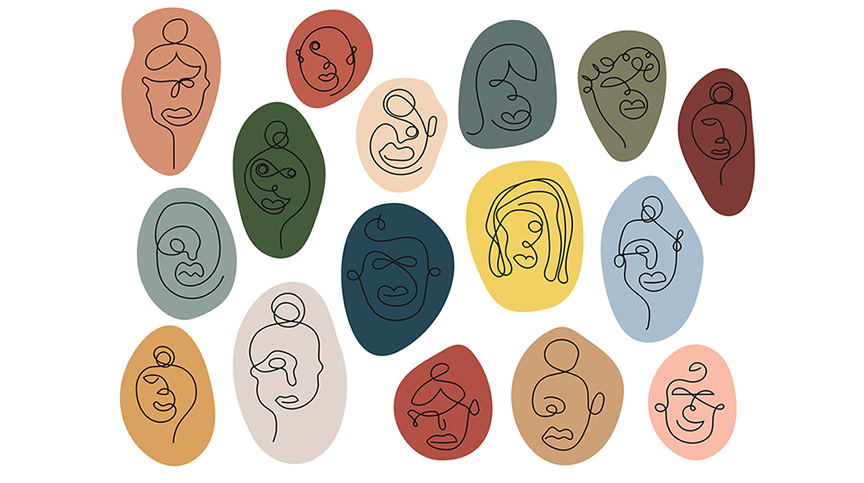Multicultural Leadership Requires Cultural Intelligence (CQ)
Managing a multicultural team can be a rewarding experience, giving leaders the opportunity to work closely with employees from diverse backgrounds and offering the chance for personal and professional growth. However, operating a team with genuinely different people also comes with a number of challenges that must be overcome to create a productive work environment.
Leaders must be knowledgeable and open-minded about different cultures to gain a better understanding of employees from different backgrounds and find a way to help them work together as a team.
Multicultural teams are often composed of people who would rarely interact with one another otherwise. While their individual cultures should be celebrated (a critical part of inclusive leadership and spanning boundaries), it’s important to shape a cohesive and constructive atmosphere for everyone involved.
Where to start? Gaining a solid understanding of social identity and the common issues associated with leading a multicultural team will help managers be more effective.
Breaking Down Cultural Barriers & Understanding Cultural Differences
It’s easy for misunderstandings to occur on a geographically dispersed team, simply due to cultural differences.
When people have different values and are accustomed to certain behaviors, it can take some work to get everyone on the same page.
Business practices, customs, and acceptable topics of conversation vary greatly from one country or culture to the next. While certain employees may initially be viewed as difficult, lazy, or rude, digging deeper to explore their cultural norms can offer valuable insights that help all members of the team understand each other better.
For example, some cultures have a more direct and straightforward style of addressing problems, while others prefer to focus on the relationship and take a more subtle and reserved approach. Team members from different regions or cultures may have to make an effort to adapt to each other’s style and expectations.
Time is another major issue that often causes rifts in multicultural teams. While some cultures plan their day according to the clock, other cultures are often much more relaxed. Employees from such backgrounds may believe it’s perfectly acceptable to let a meeting run over the scheduled time period or show up late if they were in the middle of an important conversation ─ which is bound to upset those who prefer to stick to a strict timetable.
The phrase “time is money” translates well for most cultures, since money is a universal priority in the business world. If everyone on the team respects each other’s time as they would respect each other’s money, that can go a long way.
And when team members are also geographically dispersed and working remotely, leading a multicultural team can feel even more difficult. (Learn our best practices for managing virtual teams and meetings.)
Management should talk to employees ─ creating focus groups if necessary ─ to learn more about similar problems faced by workers. If there isn’t one obvious solution to these issues, it’s a great idea to ask for input on the best way to manage them, so everyone feels like they’re being heard. This is a key part of cultivating a climate of respect in your organization.
Build Your Cultural Intelligence to Lead Multicultural Teams More Effectively
To provide more insights to those leading multicultural teams, we interviewed Soon Ang, author of several books on Cultural Intelligence (CQ) and an alumna of our Leadership Development Program (LDP)®. She was also a former recipient of our Walter F. Ulmer, Jr. Applied Research Award. Here are some insights we learned from our conversation with her.
Key Questions to Ask About Cultural Intelligence
What Is Cultural Intelligence? Why Is It Important?
Cultural intelligence is a person’s capability to function effectively in situations characterized by cultural differences. “By culture,” she notes, “we do mean national culture, but also other types of diversity like age, gender, ethnicity, profession, organization, religion, socio-economic status, sexual orientation, and others.”
Today, almost everyone needs to work on a multicultural team sometimes. And that matters, Ang adds, because “accumulating evidence shows that cultural intelligence predicts key outcomes in the real world.”
“People with higher cultural intelligence make better decisions in intercultural situations, have better job performance, are more effective global leaders, achieve better results in cross-cultural negotiations and sales, build better rapport with people from around the world, are more creative and innovative, tend to build more culturally diverse social networks, and experience less burnout when working globally. Notably, the benefits of cultural intelligence accrue even beyond the effects of experience, cognitive ability, and personality.”
What’s the Difference Between Cultural Intelligence & Emotional Intelligence?
They are related but clearly distinct. Both cultural intelligence and emotional intelligence include capabilities that facilitate effective interpersonal interactions. Emotional intelligence is critical for leadership effectiveness, and “focuses on detecting and regulating emotions,” she adds, while “cultural intelligence focuses more broadly on cognition, emotion, and intentions of self and others, and explicitly on intercultural interactions.”
“Importantly, research shows that cultural intelligence is a key predictor of performance when the work context is culturally diverse, as with multicultural teams, whereas emotional intelligence is more important when the work context is more homogeneous.”
How Can You Develop Cultural Intelligence?
Ang responds, “This is an important question. I’ve always been a strong proponent of what CCL has done, which is a behavioral-based approach to leadership development. Similarly, we focus a lot of attention in the development of cultural intelligence on creating developmental experiences that stretch one’s behavioral repertoire.” Organizations can certainly develop strong leaders with on-the-job learning.
For western leaders of multicultural global teams, Ang offers one key tip in particular: Be aware of how time pressure affects you as a leader.
Everyone knows how to get along with others and most people can pay attention, communicate, and build harmonious interpersonal relationships even across cultures so long as we have time. But as Ang notes, “With time pressure, cultural imprints take over and all things go awry. So, create situations or leadership development moments when the time pressure is really strong and see how you behave. Learn how you cope and work on it.”
At CCL, we help organizations develop leaders through heat experiences to simulate high-pressure situations, which can stretch leaders in just the way Ang describes.
Ready to Take the Next Step?
We can partner with you to develop your managers so they’re ready to lead multicultural teams successfully, and we can help you build an organization with a high level of multicultural intelligence, with a customized learning journey for your leaders using our research-based modules. Available leadership topics include Boundary Spanning, Conflict Resolution, Emotional Intelligence, Listening to Understand, Psychological Safety, Team Collaboration, Virtual & Remote Team Leadership, and more.









